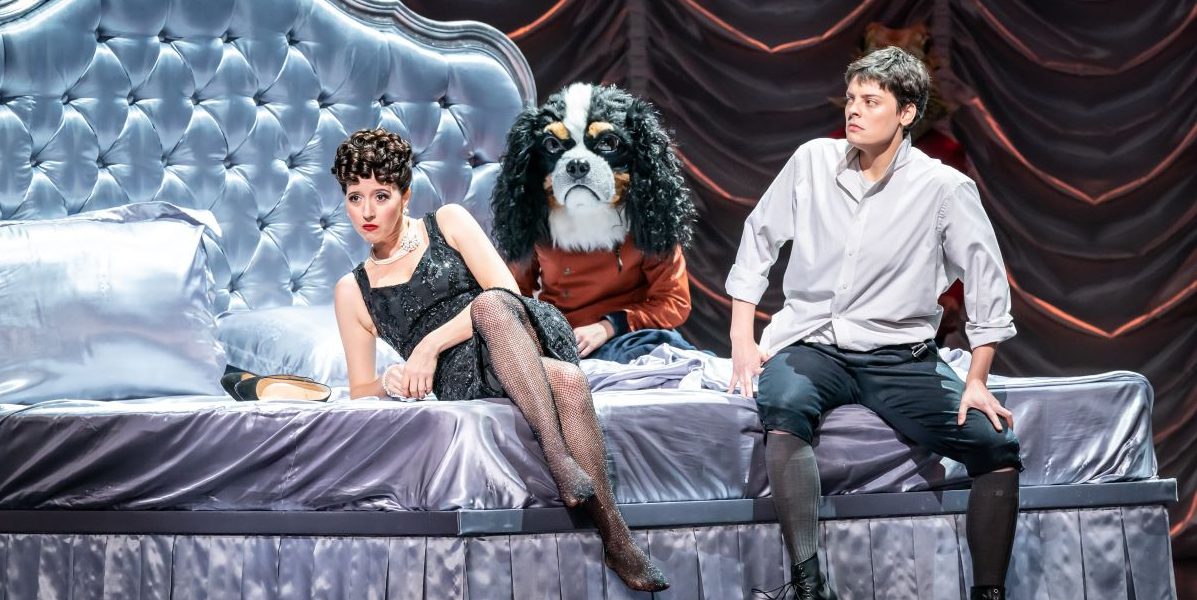On the face of it, Handel operas should not work. Bafflingly complicated plots and a long series of ‘Da Capo’ arias where the opening section repeats at the end sounds like a recipe for tedium and narrative stagnation. But with the right production values and persuasive performers they can be as engrossing as any opera from the Romantic or Modern eras. This is certainly the case in the new Covent Garden production of ‘Alcina’, which is outstanding in all respects.
‘Alcina’ was written in 1735 on the cusp of the composer’s transition into oratorio as Italian opera in London lost out to the vernacular. It is therefore a late opera composed with the fullest range of Handel’s sophistication and experience, further enhanced by the supernatural and spectacular subject matter, and a particular opportunity to write dance music for a local choreographer who had specially agreed to dance without her corset.
What this means is that the score contains vocal and instrumental numbers covering a veritable lexicon of moral, emotional and aesthetic moods – seduction, betrayal, vengeance, consolation, rapture in nature, doubt, defiance and triumph all find their place – and in the right hands can take you deep into those emotions while connecting up with the inner emotional truth of your own life, wherever it may be headed at the time.
Thus, the plot itself is of little consequence, revolving as it does, around the customary insertion of a figure in disguise into a community who promptly all fall for him/her in a whirligig of gender confusion. Alcina, the sorceress, initially carries all before her, recruiting lovers whom she then discards and turns into animals. But the returning forces of order, here embodied in the rigorous disciplines of an Amish cult, reassert themselves and demolish Alcina’s early version of Venusberg – though she has the last – and very good- laugh.
We are fortunate here that the cast are well up for the multiple challenges. In the title role of the sorceress, Lisette Oropesa struts her stuff seductively in Act One, before digging deep into the emotional challenges of the later acts as her powers wane and her kingdom falls apart. She delivers ‘Ah, Mio Cor’, one of Handel’s greatest studies of romantic anguish, with exceptional dramatic skill even extending to a self-aware acknowledgement of the potential absurdity of such intensity. As her sister, Morgana, Mary Bevan is a fine foil, making the most of the turmoil of her relationship with Alcina’s steward, Oronte, ably portrayed by tenor Rupert Charlesworth. As the object of Alcina’s enchantment, Ruggiero, Emily D’Angelo takes the character on a well-acted and crisply sung vocal journey, with a beautifully modulated rendition of ‘Verdi Prati’, the exquisite pastoral which is this opera’s most famous tune. Vardui Abrahamyan assumes the role of Bradamante, wife of Ruggiero, and the instigator of much of the action: she is particularly good in expressing the many frustrations of that role amid the unwanted attentions of the other characters. José Coca Loza completes the adult roles with a fiercely authoritarian depiction of the cult leader, Atalante. Raphael Flutter provides a contrasting register as young Oberto, a child in search of his father, one of Alcina’s transformed lovers.
However good the vocal and orchestral skills, quality Handel opera production relies on avoiding static stand and deliver with plausible stage business that is not too fussy and distractingly elaborate. Richard Jones achieves this balance with some delightful comic touches along the way, ably assisted by the swiftly changing scenes of Antony McDonald which provide all the colour, contrast and surprise required for an opera steeped in magic. A particular delight are the singers and dancers playing the animals, kitted out with an array of larger-than-life heads but performing with delicacy and charm. Christian Curnyn coaxes playing of rare finesse and steely zeal from the Royal Opera House orchestra and the supple and suave playing of the continuo group keep the recitatives moving with compelling naturalism.
Despite the length of the evening, it never drags, ensuring the production succeeds in displaying the full range of the masterly emotional palette Handel had at his command at the peak of his operatic and dramatic career.

